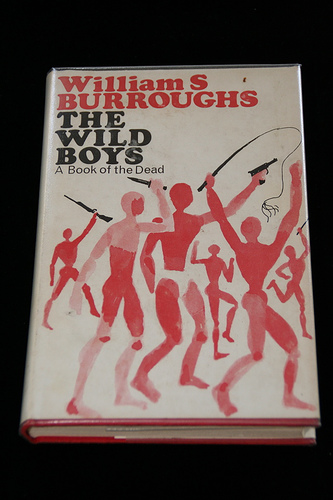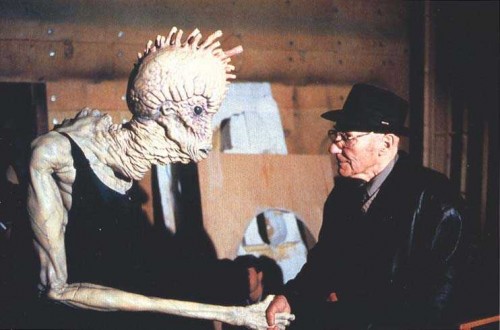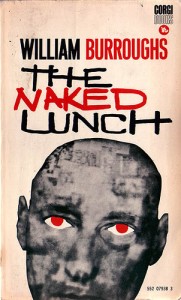Experimental fiction as genre and as principle
A few years ago at Big Other I wrote a post entitled “Experimental Art as Genre and as Principle.” That distinction has been on my mind as of late, so I thought I’d revisit the argument. My basic argument then and now was that I see two different ways in which experimental art is commonly defined.
By principle I mean that the artist is committed to making art that’s different from what other artists are making—so much so that others often don’t even believe that it is art. As contemporary examples I’m fond of citing Tao Lin and Kenneth Goldsmith because I still hear people complaining that those two men aren’t real artists—that they’re somehow pulling a fast one on all their fans. (Someday I’ll explore this idea. How exactly does one perform a con via art? Perhaps it really is possible. Until then, I’ll propose that one indication of experimental art is that others disregard it as a hoax.) Tao visited my school one month ago, and after his presentation some folks there expressed concern, their brows deeply furrowed, that he was a Legitimate Artist—so this does still happen. (For evidence of Goldsmith’s supposed fakery, keep reading.)
Eventually, I bet, the doubts regarding Lin and Goldsmith will fall by the wayside. Things change. And it’s precisely because things change that the principle of experimentation must keep moving. The avant-garde, if there is one, must stay avant.
That’s only one way of looking at it, however. Experimental art becomes genre when particular experimental techniques become canonical and widely disseminated and practiced. The experimental filmmaker Stan Brakhage, during the 1960s, affixed blades of grass and moth wings to film emulsion, and scratched the emulsion, and painted on it, then printed and projected the results. Here is one example and here is another example. And here is a third; his films are beautiful and I love them. (The image atop left hails from Mothlight.) Today, countless film students also love Brakhage’s work, and use the methods he popularized to make projects that they send off to experimental film festivals. (Or at least they did this during the 90s, when I attended such festivals; I may be out of touch.)
Those films, I’d argue, while potentially beautiful and interesting, are not necessarily experimental films. As far as the principle of experimentation goes, those students had might as well be imitating Hitchcock.
“Fuck now talk later”: Revisiting Burroughs’s The Wild Boys & why anything at all
 I realized last night how I’ve never gotten over William Burroughs; how maybe more than any syllable maker I’ve read in my life it’s been him I’ve been mimicking in mind to large degree; him one of the first of all those I still read now still coming out since seventeen in more sentences than I should like to admit; how is indexed me somehow; how I could argue with myself that if every word I write is trying to match against or kill some father, it is him, even if by now I can’t always actually remember a lot about what he wrote beyond textures, images, residues, ideas.
I realized last night how I’ve never gotten over William Burroughs; how maybe more than any syllable maker I’ve read in my life it’s been him I’ve been mimicking in mind to large degree; him one of the first of all those I still read now still coming out since seventeen in more sentences than I should like to admit; how is indexed me somehow; how I could argue with myself that if every word I write is trying to match against or kill some father, it is him, even if by now I can’t always actually remember a lot about what he wrote beyond textures, images, residues, ideas.
I read Naked Lunch the first time having got caught gut-deep in the Beats, like so many did, when a friend brought a tape of Ginsberg reading “America” in to play for our American Lit class in 10th grade. We had to get permission slips signed before we were allowed to listen because he dropped the F-bomb and dissed on everything seemingly elemental about the suburban neighborhoods surrounding Joseph Wheeler High School (named, I heard whispered more than a few times back then, for a founding member of the Klan). The high school I went to was a weird mix of hood and upper middle class; there were fights at least a couple times a week; I vividly remember walking one day to the senior lot and seeing a truckbed full of dudes in masks with weapons coasting through without an inch of other motion: they didn’t find who they were looking for; or maybe they were simply there to be an image burned into my head. But more than them, and more than many things, there were these freakshows of strange language suddenly appearing in the half-slept muddle of all those other high school era books.
Creative Writing 101

Tuesday, 10/13. Shredded Text Day.
For Tuesday we read a few brief excerpts from Naked Lunch (Dr. Benway’s “aesthetic surgery,” and “have you seen Pantopon rose”) plus four selections from Gentle Reader! a collaborative book of poetry written by Joshua Beckman, Anthony McCann and Matthew Rohrer. If you’ve never heard of this book, it’s because it was privately (or, if you want to be a dick about it, self-) published by the three poets, and hence is not generally available. (I cadged a copy from Rohrer.) The poems are not written collaboratively–I don’t think–but they’re all unsigned, so you have to guess who wrote what. Also, each poem is an erasure of a Romantic-era text. There’s a key at the back. Since I don’t have the materials ready-to-hand (I’m posting this from a writers’ retreat in Breckenridge, CO, where I’m serving as writer-in-residence for the weekend) I can’t tell you much about the poems, other than that the one called “I Was Alive” is an erasure of Frankenstein, and that it was written by Anthony McCann–both of which things I know because McCann first published the poem non-anonymously in the Agriculture Reader.
Anyway, we didn’t do a lot of textual analysis, and so you won’t be getting the usual slate of close readings. I was more interested in presenting a variety of non-narrative forms, and in talking about the technical aspects of the processes used to create the works. Then we busted out the scissors, Sharpies, and photocopies, and got down to the good work of fucking shit up.
Influences 3: Nathan Tyree

And now the third response to my influences post. The subject is Nathan Tyree.
1) Pick one of the pieces you chose and describe the thing about it that seems particularly innovative about it.
2) Tell me what changed about your writing because of that innovation.
Here are his responses:
1) Naked Lunch was the first thing I read that was truly experimental. I was sixteen, and all the novels I had read followed the same rules, the same strictures of what a novel was. Burroughs seemed to be saying “fuck the novel”, he seemed to be spitting in in they eye of society. Naked Lunch wasn’t a novel; it was an insult- a savage cry. Everything I read after that had to be seen through a different, distorted lens.
2) I stopped being afraid. NL made me realize that you learn the rules so that you can break them with glee.

